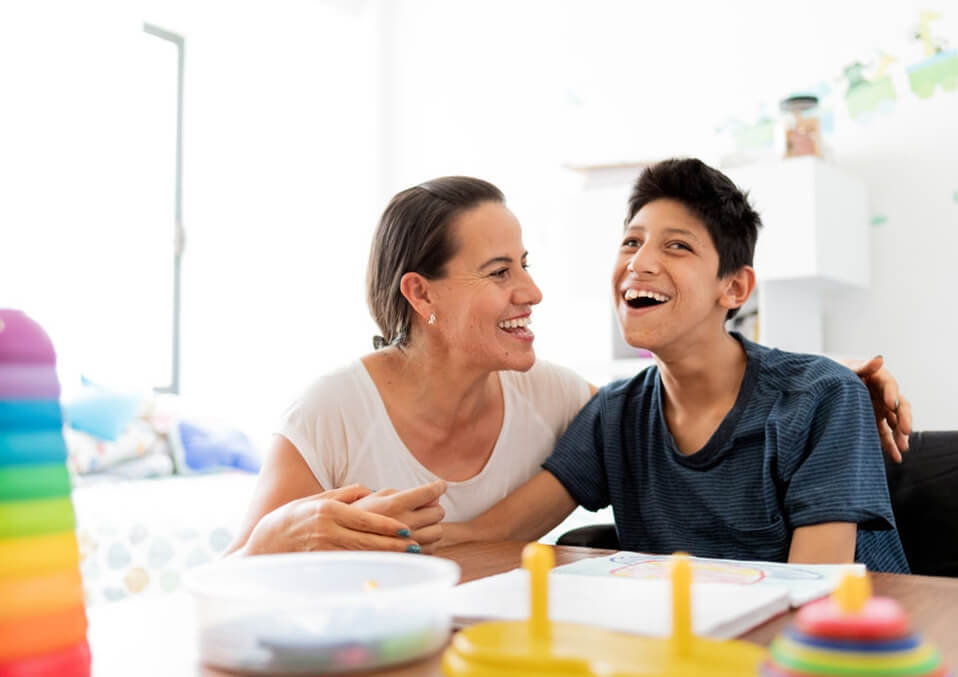
Raising a child is no easy task for parents. Let alone having a child with cerebral palsy makes it a whole lot more challenging. Children with cerebral palsy definitely have special needs compare to other kids. Cerebral palsy affects each child in different ways so no families have the same exact experience when it comes to caring for their child. Even though your child’s doctors and therapists are in charge of much of his treatment, parents play a vital role in making their child’s life easier. There are many ways parents can help their child to do his best despite having Cerebral Palsy.
In situations like this, it is normal for parents to feel scared and worried about their child. As their children grow up and ready to go to school, they face another challenge. They may wonder if their children can fit in and be accepted by their peers.
A child with cerebral palsy face and overcome so many challenges already at an early age. Their health conditions require them to have so many medical appointments, special education interventions and more in their daily living. They also may talk, walk and act differently from other kids. Oftentimes, they struggle with social development.
They may not relate so much with their peers and so as their peers to them. This feeling can develop into isolation and can even last into adulthood. They may not cope well with their relationships with their neighbors, friends, and schoolmates resulting in undeveloped social skills.
This problem along with other problems can be avoided if parents can use some methods and tips on how to raise a child with cerebral palsy. Here are 7 tips for parenting and raising a child with cerebral palsy:
Help him be active

Your child has a limit in playing sports unlike other kids, but it is important that he is able to have physical activities as well. Help him to play, walk and move as much as he can. You can teach him to use his muscles in many ways. If you train him to be active, it will strengthen his muscles and may reduce his muscle spasms. He can have fewer health problems if he is physically active.
Be on top of his care
Although your child’s doctors are in charge of all the monitoring and treatments your child is going through, it is important that you are informed about all of it. You should be involved in the care given to your child. Being involved will help you make wiser health decisions, see when treatments are successful and learn which treatments work. You being part of the team makes your child’s life easier.
Be an at-home therapist for your child

Therapies should not just end when your appointment is done. With guidance from your child’s doctors and therapists, you can learn proper ways to help your child do some simple therapy and exercise at home. Especially when your child is suffering from muscle spasms, you can’t always go to your doctor in all situations. Sometimes, a massage will help. So you may want to learn some basic massage techniques so you can do it when you’re at home.
Help him learn more things
Despite your child’s situation, you can still help him learn and discover new things. You can help him broaden his mind and world. You can go to museums, work on art projects, play games together or listen to different types of music. These experiences will help your child learn and develop new skills. It can also build up his self-esteem.
Maintain a positive outlook
Although your child cannot do all the things that his peers are able to do, he should not be upset about it. He should be taught not to focus on his limitations. Instead, parents can help him realize that there are things that he is able to do on his own or with some help.
Parents should initiate in keeping a positive outlook so that children can imitate it. Parents can seek mental health care so that the child will be assisted in how he views his situation. Since persons with cerebral palsy tend to become depressed, parents can start early in helping them to have a positive attitude.
Have a balanced diet
Having a balanced diet is actually important in raising a child with cerebral palsy. It is best to serve a healthy and balanced meal to your child so he can have strong bones and muscles. Your child’s doctor may have some medicine, but food rich in calcium, nutrients, and vitamins can help your child in building their bones and avoiding health problems.
Get to know other parents with the same challenge

When you are having appointments in your child’s doctor or therapists, it is more likely that you will meet parents whose child also has cerebral palsy. When you have the same issues with your children, it can help to build friendships. It is a good idea to talk to other parents and become friends with them. They are the ones who can relate to you, and you can relate to them as well. In this hard journey, it helps when you have friends who understand and feel the same way with you. Other parents are also able to give suggestions, offer advice, give honest reviews, suggest new doctors or treatments and more. They can also help you up when you are having a hard time. And your kids can also become friends as well.
The 7 tips and ways above are just a few ways parents can raise a child with cerebral palsy. There are many more ways that you can look for, but these 7 ways are basic tips that can generally work for most cases. May the parents learn and persevere in this life-long journey. It is quite challenging but seeing your kids being the best they can be is priceless.
Read also:
- Birth defects: Common types and causes
- Which Type of Mutation Cannot Occur in a Child After Birth?
- First Pediatrician Visit: What are the Things You Need to Bring?


